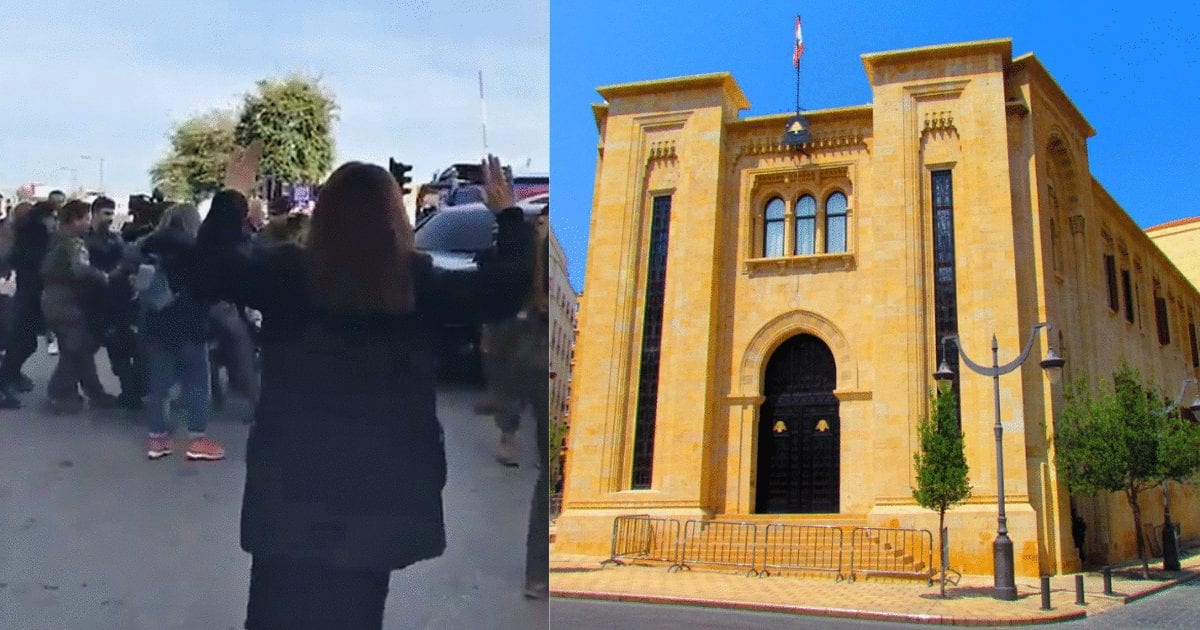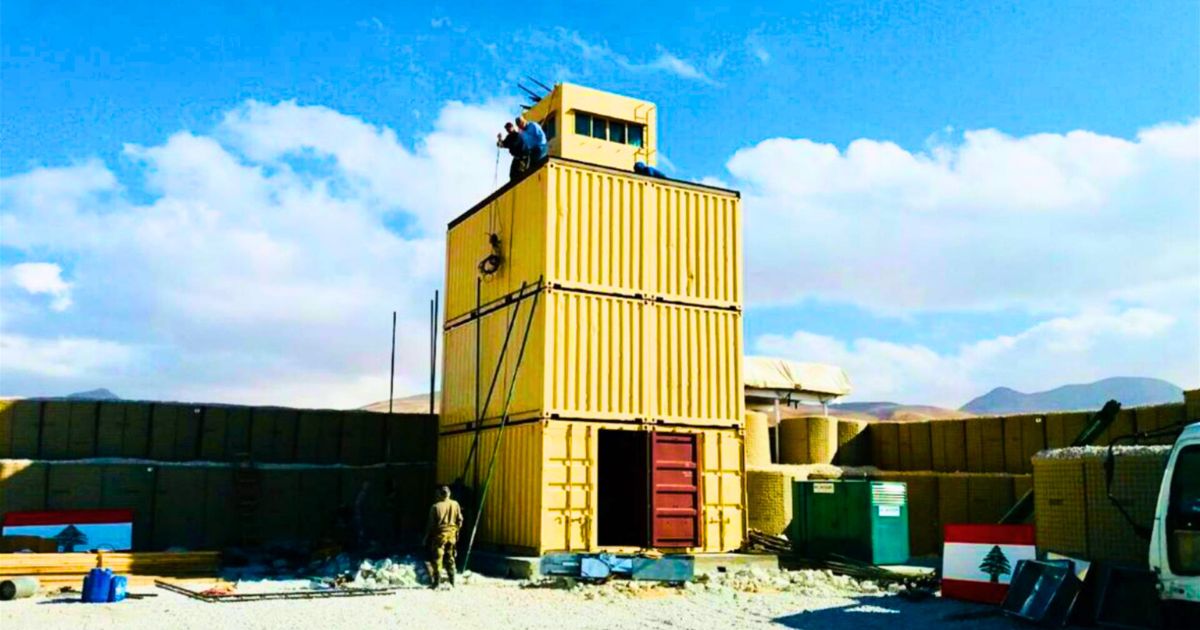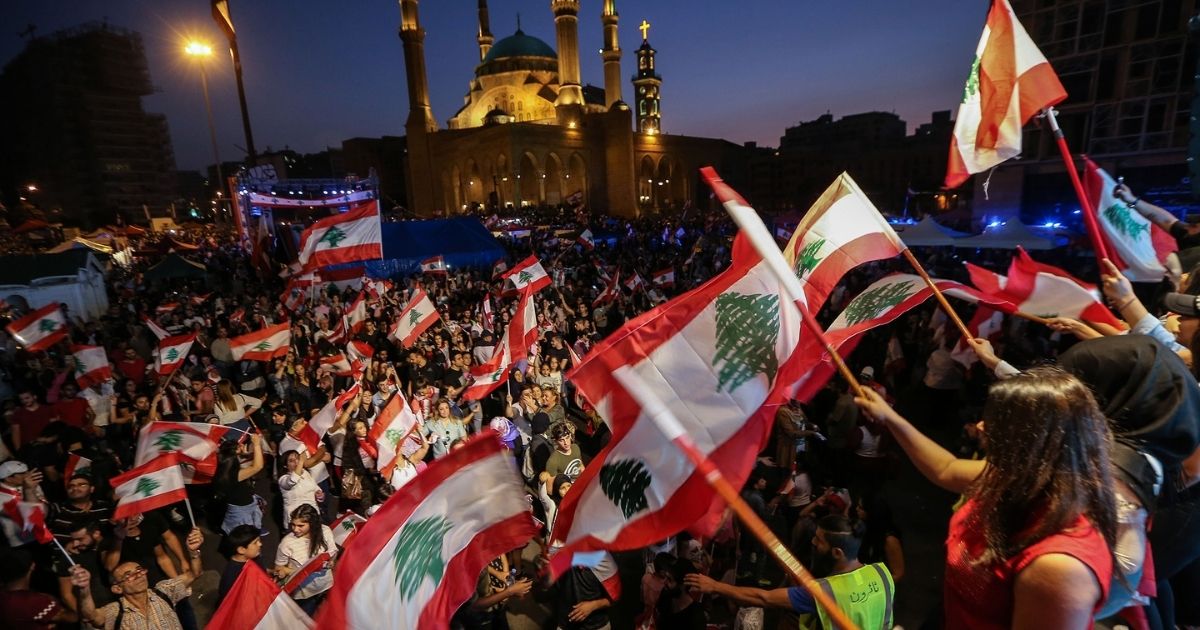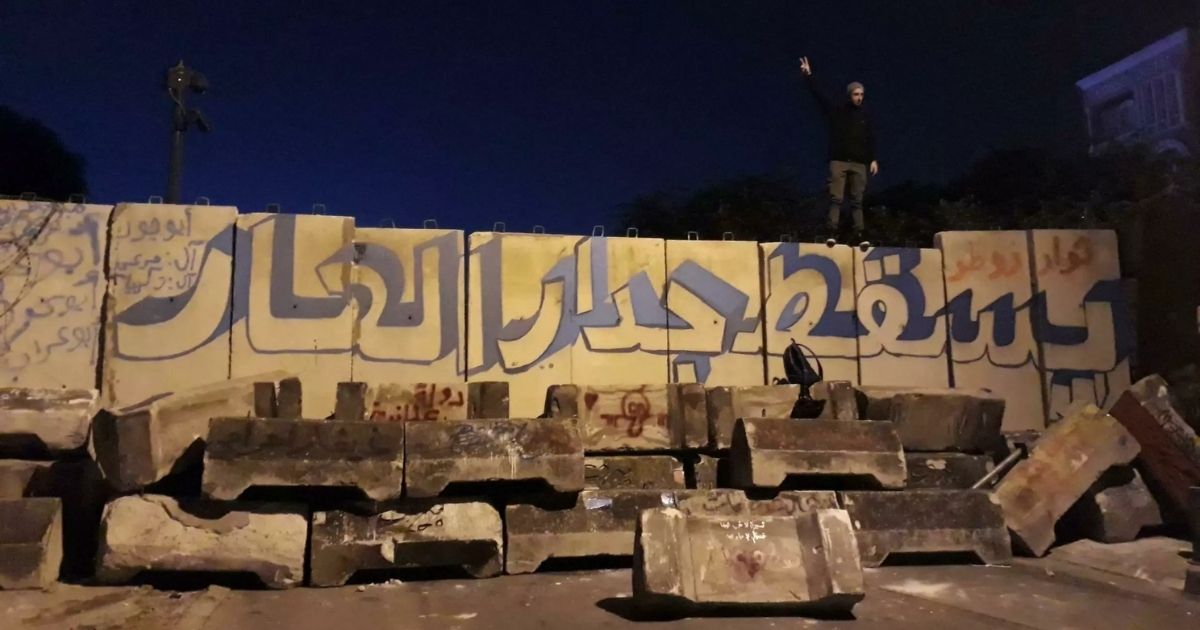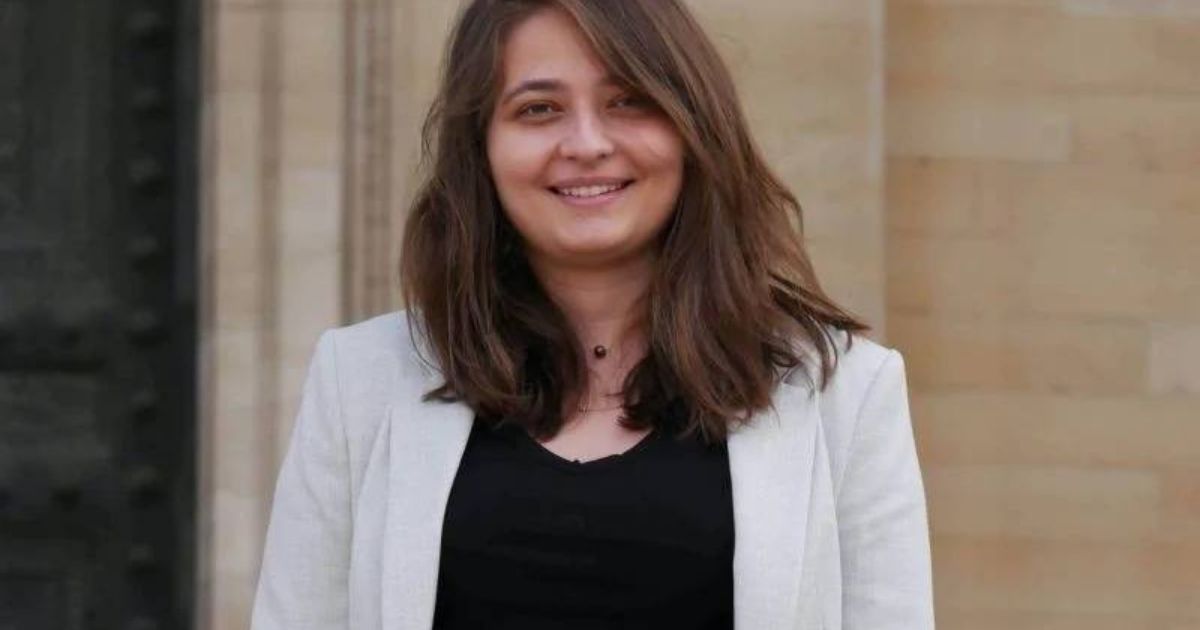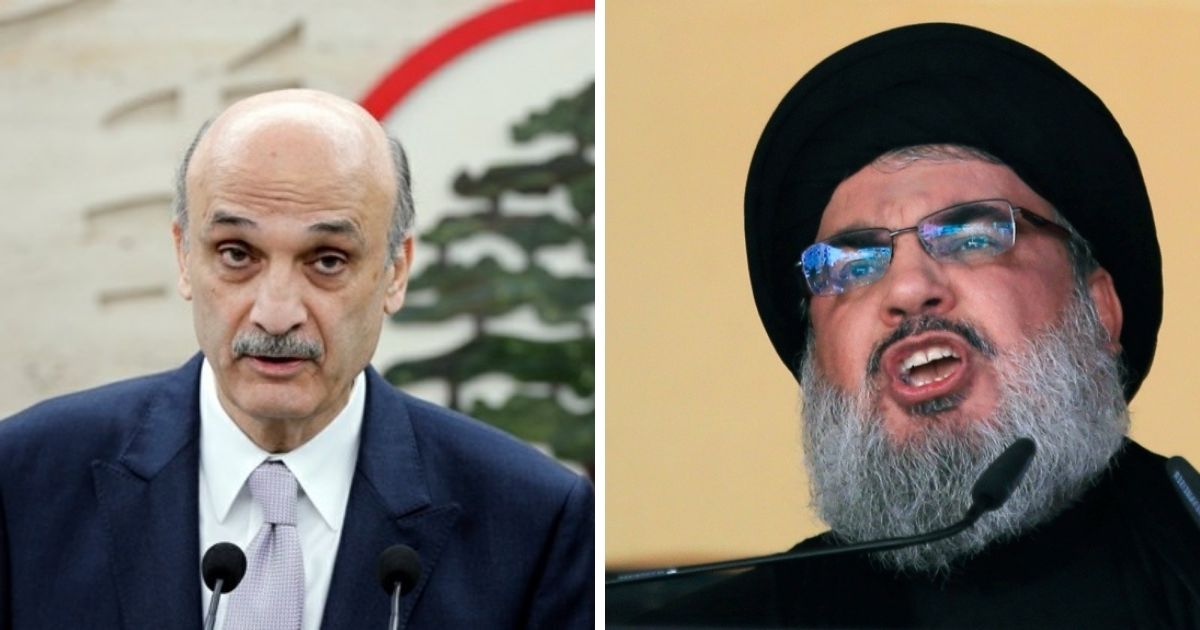The parliamentary session was due on Monday, January the 27th, for the Lebanese MPs to discuss and vote for Lebanon’s 2020 budget, in the presence of the head of the new government, Hassan Diab.
A day before the parliamentary session, people of the revolution called to form a human shield at all the entrances of the parliament in Beirut to impede the MPs from entering and holding their session.
That session was and is deemed unconstitutional by the people and many politicians for lacking the parliamentary vote of confidence.
For the Lebanese revolutionaries, the current MPs have completely lost their legitimacy, and the new government has not yet gained confidence.
Hence, for these ministers to enter the parliament and vote on a budget “on behalf of the people” when they no longer represent the people was deemed unacceptable by the Lebanese revolutionaries, let alone a total disregard to the Constitution and to the people whom they pretend to represent.
In spite of all attempts by the Human Shield to stop them, the MPs who showed up managed to make it through because of the enhancement of security at the leading roads.
A large number of security forces and members of the Lebanese army were present at the entrances by the time the protesters arrived at the site early morning.
They pushed the protesters back and kept them from holding sit-ins and blocking the roads that lead to the Parliament.
Many people objected to the excessive use of force towards the protesters, which left some people injured and some hospitalized. Many were also arrested, including a minor.
All sides came prepared that day. The security forces and the Lebanese army took high-security measures. They also brought water cannons in case of any major conflicts.
As for the revolutionaries, they came early in the morning, and in big numbers. Several buses came down to Beirut from Tripoli.
There were several attempts from the protesters to block the roads and there were several attempts by the protesters to go into the Parliament.
Those attempts led them to several confrontations with the security forces all over the downtown area, which included both sides throwing rocks at each other.
Aside from the security forces, the protesters also confronted the MPs on their way to the Parliament with their escorts and motorcades. As the MPs’ cars with dark windows passed, protesters chanted at them “Thiefs! Thiefs!”
One, in particular, took the time to slow down by one of the protesters, lower the car window, and address her with: “Wehde metlik haramiyeh,” meaning: “Someone like you is a thief.”
Since he couldn’t possibly know who she was, a protester among many, it was understood by the crowd that he meant her as a protester.
He was recognized as MP Salim Aoun, one of the founding members of the Free Patriotic Movement.
Amid all of this, the parliamentary session did take place. The budget, which was drafted pre-October17, was not amended nor adjusted, neither reportedly reviewed by Prime Minister Diab.
It was, nonetheless, presented for voting and agreed on by a total of 49 MPs. 13 voted against it while 8 MPs didn’t vote.
Many MPs were also against this session, including Elias Hankach, Faisal Karameh, Paula Yaackoubian, and Samir el-Jisr who withdrew.
MPs Hankach and Yaackoubian were against the session for revolutionary reasons, while the others accused it of being unconstitutional.
The MPs of Hariri’s party Tayyar al Mostakbal didn’t want to attend the session, but they changed their minds after a call the speaker of the parliament Nabih Berri made to Saad el-Hariri.
As for the revolutionaries, none of the day’s events were enough for them to back down.
They resumed their protests and sit-ins in Riyad el-Solh and Martyrs’ Square, holding on to their demands and principles, even if – or because – no one’s listening.
A remarkable one was a peaceful sit-in in which the people chanted, “The army and the people to the parliament,” calling on the army to stand by the people against the parliament that has acted unconstitutionally.
